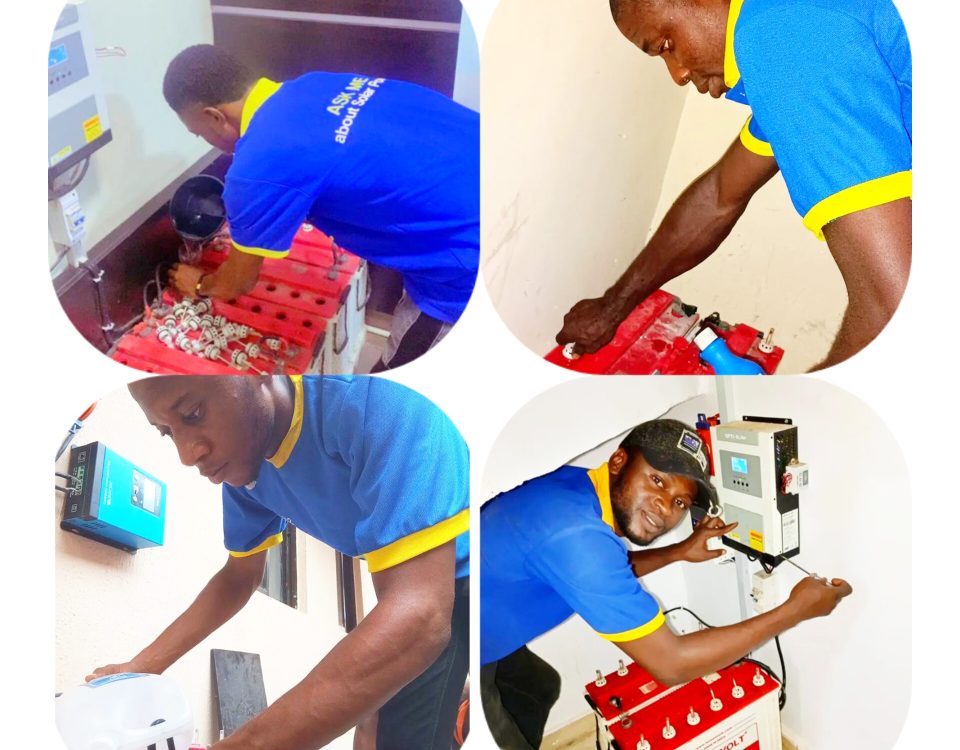How Solar is Powering The Work From Home Revolution

First Commercial Mini Grid in Nigeria Mounted in Ogun State
2020-07-28
Why You Should Care About the Environmental Benefits of Solar
2020-08-01
In April this year the nation was locked down following the outbreak of Covid-19. Firm orders by local, state and federal governments shut down the country to ensure the safety of citizens. Company owners had a decision to make. Cease all operations and face dire economic consequences or use technology to secure the future of the business and the livelihood of staff. A heavy paradigm shift took place overnight in which work life was transformed. A large number of employees found themselves working from home and using green energy, video conferencing apps and online customer relationship tools for the first time to ensure business continuity. This change in the mode and place of work, rather than being a temporary measure, is now evidently becoming a long-term strategy by companies due to the many benefits of homeworking.
Nairametrics first reported that large Nigerian institutions have ‘a major percentage of head office staff working from home.’ Banks, legal firms and accountancy practices are some of the organizations mentioned with one Stanbic IBTC worker , Okeoghene, narrating her experience ‘“I work at the customer service desk under operations and had to get my tasks done from home virtually. I would take customer calls, open virtual accounts and carry out other services that could be done from home.” But it’s not just large institutions that have migrated their businesses to a home working business model. Small to medium sized companies have also pivoted and everyday experiences such as schooling, worship, recruitment and training and fitness classes are increasingly being delivered by staff who are not based in the office.
The work from home revolution is the new era upon us and fortunately for Nigeria most supporting technologies can be accessed anywhere in the world. The growth in uptake of these tools across the globe is evident in the dramatic increase in the stock value of software companies involved in virtual communications and collaboration. According to Bloomberg teleconferencing service Zoom added 100 million new users between April 1, 2020 and April 21, 2020 alone.
However, virtually all forms of work are dependent on constant electricity. Lack of a viable alternative power source has been an insurmountable challenge for Nigerians in the past due to the erratic grid supply and high cost of fueling and maintaining a generator. Now, with the widespread availability of affordable solar power, working from home is feasible. In fact, it is a walk in the park for those who have switched to the technology.
Abiola Okoya, a sales agent for a Lagos based solar company, decided to purchase a 500 watt solar power system to facilitate his working from home. He went from having erratic power supply from the grid in his hometown of Ogun State to 24- hours light , “In my area, we experience a lot of power issues – a power outage could go on for days. But with my shift to solar, I really don’t have anything to worry about. My devices do not go off unless they have an issue. Solar has made working from home an awesome experience’’ His company are now planing to roll out solar to its entire staff who now all work remotely for at least 3 days a week.
From one perspective, Covid-19 has had a devastating impact on the world. On the other, the work from home revolution has birthed an era of simplified lifestyle and more conducive life for business owners and staff. Business operations can continue, people no longer have to worry about long hours of traffic to and from work leading to more productivity and staff are performing better due to managers adopting a new culture of clear targets and more effective monitoring. Nigerians are not being left behind in this new world, they are embracing it and using solar technology as their foundation




